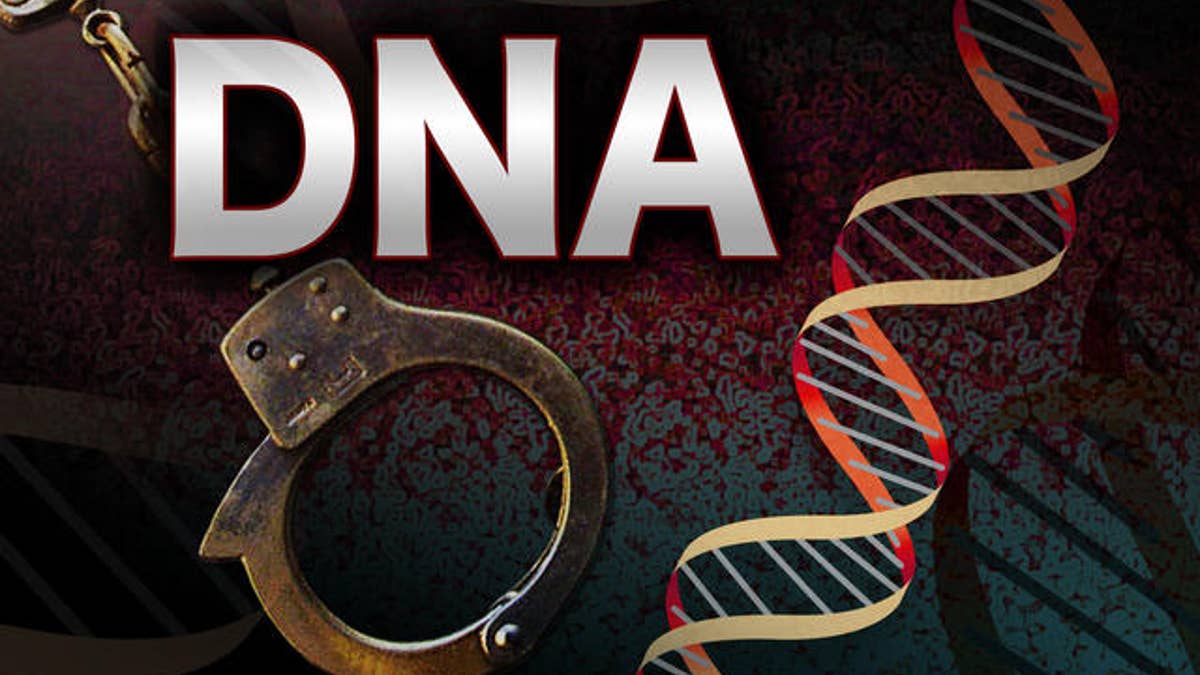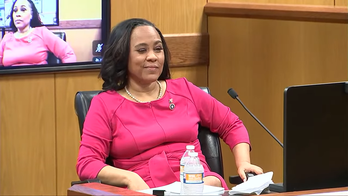
DNA molecule, double helix, drawing, on texture with handcuffs and DNA lettering. (AP)
Pennsylvania is considering a bill that would expand the authority of police to collect DNA from suspects arrested for serious crimes -- to be used to find links to other open cases unrelated to the arrest.
A similar federal law has already been struck down by a district court, which declared it unconstitutional.
While supporters of the bill say pre-trial DNA testing will help capture criminals faster and prevent crimes, privacy advocates and civil liberties groups say that not only is it an unreasonable search, it is an all-out effort by police to try to link suspects to any crime where DNA evidence is available.
Twenty-four states -- including New Mexico, Maryland, Virginia, Ohio, Florida, Texas and California -- have approved versions of Katie's Law, named after a 22-year-old woman whose body was dumped in a landfill in New Mexico in 2003.
Katie Sepich was pursuing an MBA at New Mexico State University when she was killed in August 2003 by Gabriel Avila, who's now serving a 69-year prison sentence for her murder. He was linked to her murder after he was arrested in December 2006 and a DNA sample he gave following a burglary conviction matched DNA found on Sepich's body.
Sepich's mother, Jayann, says the case would have been solved much sooner if Avila would have been required to give a DNA sample after a felony arrest in November 2003.
In 2009, then-President George W. Bush enacted a 2006 law just days before President Obama took office that allowed DNA samples to be taken after arrests for federal crimes, such as counterfeiting or kidnapping across state lines.
But that law is being challenged in court now and is likely headed to the Supreme Court.
"We absolutely think the Supreme Court will uphold it," Sepich told FoxNews.com.
In 2009, a federal judge in Pittsburgh ruled the law unconstitutional, saying that pre-trial DNA testing violates the Fourth Amendment's guarantee against unreasonable search and seizure. An appeals court is now considering the Justice Department's argument that the program is no different than fingerprinting.
U.S. lawmakers also introduced legislation this month that would provide federal funds to states that adopted Katie's law and set a national standard for collecting DNA evidence. The legislation passed the House during the 111th Congress but failed to clear the Senate before the session ended.
Sepich said it's "very expensive" to launch the program but added that costs go down each year. It's not clear how much the program costs because of different variables in each state, Sepich said. She said New Mexico spent $500,000 to launch the program.
Besides Pennsylvania, nine other states are considering adopting Katie's law, Sepich said: Georgia, Hawaii, Oregon, Illinois, New Jersey, New York, Wisconsin, Connecticut and Indiana.
In Pennsylvania, the Senate Judiciary Committee is currently reviewing the bill that would require DNA testing after a suspect's preliminary hearing on any felony charge or any of more than a half-dozen misdemeanors, including indecent assault, child luring, unlawful restraint, concealment of a child's death, dealing in infant children or assault on a child younger than 12 by an adult 21 or older, according to Senate Majority Leader Dominic Pileggi.
The bill also would allow police to use searches of DNA collected from crime scenes to find close -- but not exact -- matches to trace potential relatives of a perpetrator.
"We need to make the best possible use of the rapidly evolving science of DNA evidence to help fight crime and ensure public safety," Pileggi said in a statement. "That's not happening right now, and as a result criminals are going free and innocent people are in jail. That's unacceptable."
But the Pennsylvania ACLU opposes the bill, saying it amounts to an invasion of privacy.
"This bill implements blanket DNA testing without a warrant and without suspicion," Andy Hoover, legislative director of the state ACLU, told FoxNews.com. "And that runs into Fourth Amendment problems."
Hoover noted that authorities typically have to get a court order to sample DNA from suspects if DNA evidence is found at the scene of a crime.
"That's not what we're talking about here," he said. "This is taking a DNA sample regardless of the facts of the crime and sending it to the state police database and making him a suspect in all unsolved crimes that has DNA evidence."
Pileggi says his bill addresses "legitimate privacy concerns" by requiring the automatic purging of DNA records for exonerated convicts and prohibiting the use of records in the state DNA database for research into genetic markers.
Hoover said he supports those provisions but that doesn't change the group's opposition to the bill.
"The big sticking point is taking DNA at the arrest," he said.




